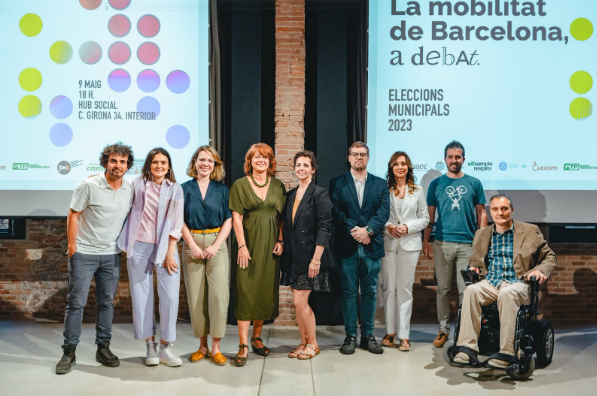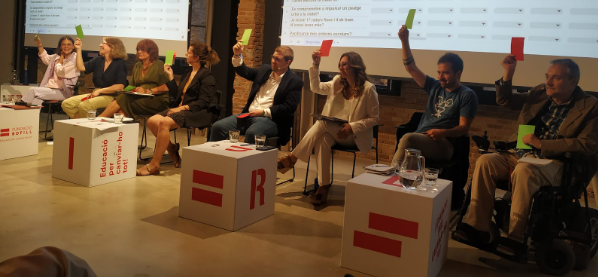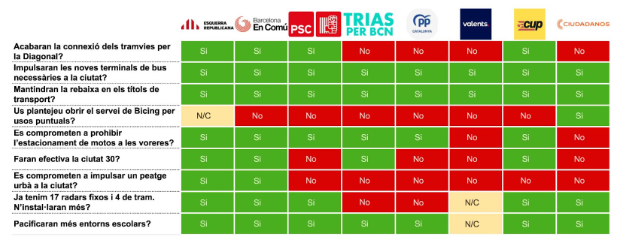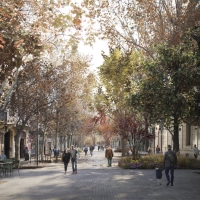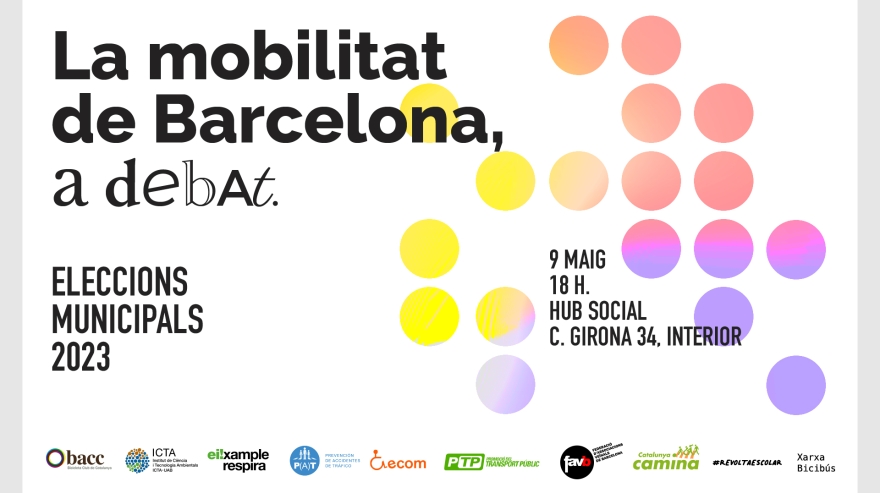
MOBILITY IN BARCELONA UNDER DEBATE
Mobility debate
Barcelona systematically fails to comply with the pollution limits allowed by the European Union, and studies published by ISGLOBAL estimate that more than 1,000 people die each year in Barcelona from causes related to high levels of pollution, noise, heat and lack of green spaces. And it is estimated that each year more than 1,000 children develop asthma due to air pollution, especially concerning in school environments. Furthermore, 20 people a year die from moving through the streets of Barcelona and more than 10,000 people are injured. More than considerable numbers because the candidates for mayor of Barcelona explain to us what their proposals are in relation to mobility, public space and pollution.
The high levels of pollution, the noise of motorized traffic, the occupation of public space (motorcycles on sidewalks), road safety, the lack of green spaces, the promotion of public transport and its accessibility, the promotion of active mobility, the implementation of a Low Emissions Zone… are some of the issues that are leading the political and public debate in the months prior to the municipal elections on May 28 and that will be key in the next legislature. An area of concern for the people of Barcelona and that will be decisive in choosing the next mayor.
For this reason, the entities defending the rights of pedestrians, children, the neighborhood, people with disabilities and sustainable and safe mobility organized the electoral debate on May 9 to listen to and debate the mobility model defended by the parties that They run in municipal elections.
The debate is organized by neighborhood entities (FAVB), organizations defending the rights of pedestrians and children (Eixample Respira, Catalunya Camina, Revolta Escolar, Xarxa Bicibús, P(A)T, Ecom), sustainable mobility (PTP, BACC) and the ICTA-UAB research institute.
With an opening of the debate focused on public health, where mobility plays a crucial role, the different candidates showed their concerns for the next term.
Highlighting their unanimity with the desire to maintain discounts on public transport, the different parties also put on the table the need for good social pricing policies and the improvement of metropolitan relations. Although in terms of social pricing we see a common point of work, the policies to restrict private vehicles fail to unite political forces.
A clear discrepancy remains the future of the tram connection along Diagonal in Barcelona. While some defend the completion of the works, others oppose it, considering it an ideological and expensive work.
The cohesion between the different parties returns when talking about the future of bike lanes in the city. Everyone is in favor of them, but they differ regarding their implementation and improvement. Most candidates express their willingness to review some of the existing lanes.
A topic that caught the candidates by surprise was the question “what would be a universal sidewalk for you?” Everyone agrees on the importance of guaranteeing a city accessible to all, especially for people with disabilities and reduced mobility. Among the different proposals, the one that achieves the least consensus is the review of the terraces. While some clearly see them as obstacles in the pedestrian crossing, others defend that with the applied regulations they do not represent it.
The proposal for city 30 also gained relevance in the debate, which is necessary for many of the candidates but not shared by all. It is proposed to work on more prevention plans to guarantee road safety instead of limiting the speed of the city. In this debate, it is agreed that citizen participation is key, but there is no consensus on the current model of participatory budgets and the different spaces for participation.
Once the general debate was over, the entities decided to ask direct questions to the different parties, which would give open answers to relevant issues.
Many positions were collected at the end of the event with questions with a single YES/NO answer (with some abstention), collected in this table.
Thus, mobility management is presented as an important challenge for the future of Barcelona, where political consensus is not completely guaranteed.
You can recover the entire debate on YouTube: Barcelona’s mobility, up for debate!






